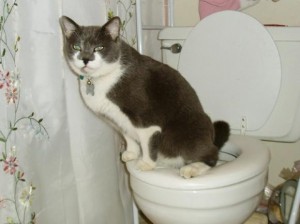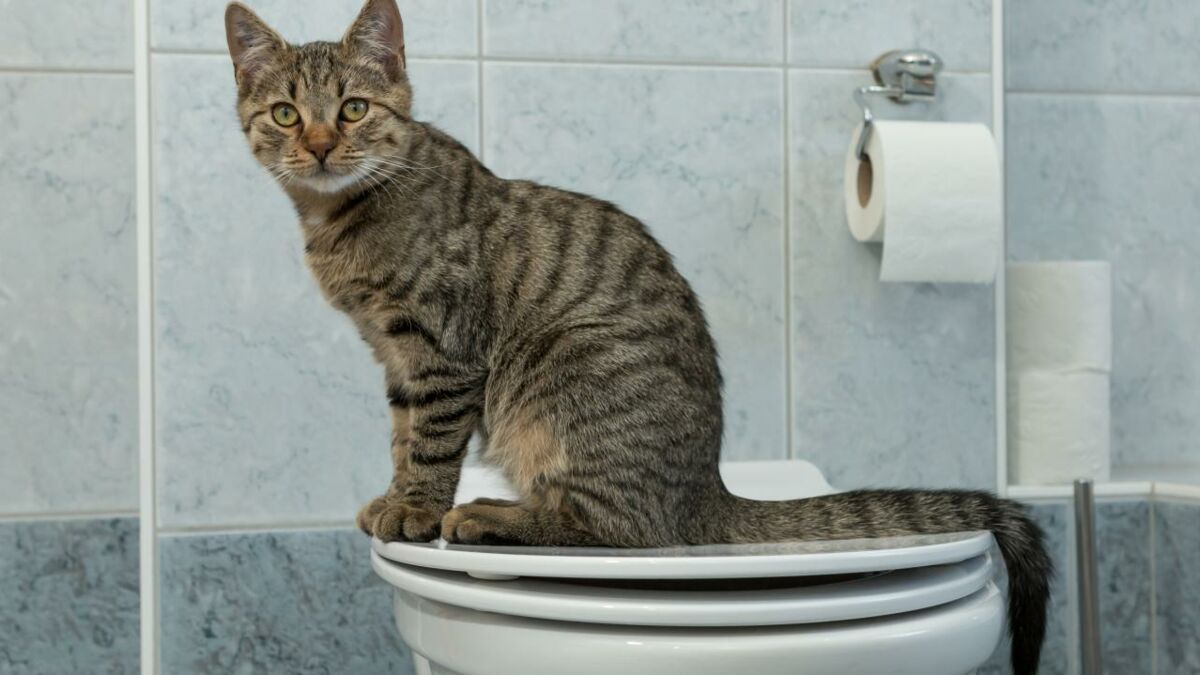Why You Must Never Flush Cat Poop Down Your Toilet - Critical Facts
Why You Must Never Flush Cat Poop Down Your Toilet - Critical Facts
Blog Article
The content down below involving Can You Flush Cat Poop Down The Toilet? is particularly attention-grabbing. Read it yourself and decide what you think of it.

Intro
As pet cat proprietors, it's essential to bear in mind how we dispose of our feline pals' waste. While it may seem practical to purge feline poop down the toilet, this method can have damaging effects for both the atmosphere and human health and wellness.
Environmental Impact
Purging cat poop introduces unsafe virus and bloodsuckers right into the water, positioning a considerable risk to aquatic environments. These pollutants can negatively influence aquatic life and compromise water high quality.
Health and wellness Risks
Along with ecological problems, purging pet cat waste can also position health threats to people. Pet cat feces may have Toxoplasma gondii, a bloodsucker that can trigger toxoplasmosis-- a potentially severe ailment, particularly for expecting women and individuals with weakened body immune systems.
Alternatives to Flushing
Fortunately, there are much safer and a lot more responsible methods to deal with feline poop. Consider the adhering to choices:
1. Scoop and Dispose in Trash
The most typical technique of taking care of pet cat poop is to scoop it right into an eco-friendly bag and throw it in the garbage. Make sure to make use of a committed trash inside story and deal with the waste promptly.
2. Usage Biodegradable Litter
Select naturally degradable pet cat trash made from materials such as corn or wheat. These clutters are environmentally friendly and can be securely taken care of in the garbage.
3. Hide in the Yard
If you have a lawn, think about hiding pet cat waste in an assigned location away from vegetable gardens and water resources. Make certain to dig deep adequate to prevent contamination of groundwater.
4. Install a Pet Waste Disposal System
Purchase a pet dog garbage disposal system particularly made for pet cat waste. These systems use enzymes to break down the waste, minimizing odor and environmental effect.
Conclusion
Responsible pet dog possession extends past giving food and shelter-- it likewise includes correct waste administration. By refraining from flushing feline poop down the commode and choosing different disposal approaches, we can reduce our environmental impact and secure human health.
Why You Should Never Flush Cat Poop Down the Toilet
A rose by any other name might smell as sweet, but not all poop is created equal. Toilets, and our sewage systems, are designed for human excrement, not animal waste. It might seem like it couldn’t hurt to toss cat feces into the loo, but it’s not a good idea to flush cat poop in the toilet.
First and foremost, assuming your cat uses a litter box, any waste is going to have litter on it. And even the smallest amount of litter can wreak havoc on plumbing.
Over time, small amounts build up, filling up your septic system. Most litter sold today is clumping; it is made from a type of clay that hardens when it gets wet. Ever tried to scrape old clumps from the bottom of a litter box? You know just how cement-hard it can get!
Now imagine just a small clump of that stuck in your pipes. A simple de-clogger like Drano isn’t going to cut it. And that means it’s going to cost you big time to fix it.
Parasitic Contamination
Believe it or not, your healthy kitty may be harboring a nasty parasite. Only cats excrete Toxoplasma in their feces. Yet it rarely causes serious health issues in the cats that are infected. Most people will be fine too if infected. Only pregnant women and people with compromised immune systems are at risk. (If you’ve ever heard how women who are expecting are excused from litter cleaning duty, Toxoplasma is why.)
But other animals may have a problem if infected with the parasite. And human water treatment systems aren’t designed to handle it. As a result, the systems don’t remove the parasite before discharging wastewater into local waterways. Fish, shellfish, and other marine life — otters in particular — are susceptible to toxoplasma. If exposed, most will end up with brain damage and many will die.
Depending on the species of fish, they may end up on someone’s fish hook and, ultimately on someone’s dinner plate. If that someone has a chronic illness, they’re at risk.
Skip the Toilet Training
We know there are folks out there who like to toilet train their cats. And we give them props, it takes a lot of work. But thanks to the toxoplasma, it’s not a good idea.

As a person who reads on Can You Flush Cat Poo or Litter Down the Toilet?, I was thinking sharing that piece of content was a smart idea. Those who liked our blog entry please make sure you remember to pass it around. Many thanks for your time invested reading it.
Start Now Report this page